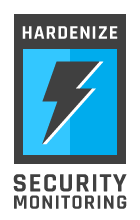Dual-licensing for open source businesses
When I started to build a business around ModSecurity, back in 2004, I chose to keep complete ownership of the ModSecurity code base. This business model is better known as dual-licensing. Keeping ownership of the code has the following advantages:
- The product becomes (or remains) an asset; it increases the value of your business.
- You can license the product under a different licence. For example, you can sell a version under a closed-source licence to the companies who are not fond of (or familiar with) open source licences. Similarly, you can sell OEM licences, which may be quite an interesting possibility, depending on the type of product you have.
- Finally, you can bundle your open source product with another closed-source component and release the whole as a commercial closed-source product. This is quite a common strategy today.
Dual-licensing only makes sense when combined a viral licence such a GPLv2, in which case it helps you make your software freely available to your users, simultaneously creating a shield to guard you from your competitors—with only the open source licence to work with, the only way for them to benefit from your code is to embrace open source (which seldom happens).
As you can see, the advantages are many. But they are not free.
In return for the above benefits, you create a community of users rather than of a community of users and developers. The people interested in joining an open source project will largely do so for the reasons of passion, but the asymmetrical relationship of dual-licensed projects often stands in the way. Not only they have to justify giving you something (code rights) for nothing, but they can never hope to truly become part of the development team.
End result? You may end up with no contributors at all.
On the other hand, if you give everything away for free, you may find it difficult to pay for further development.
I spent months and years thinking about the above conundrum, and ended up believing that dual-licensing is an acceptable compromise and a viable business approach. At the end of the day, the approach probably won't give you that warm and fuzzy feeling only the participation in the open source community can, but, if successful, your project will be made available to everyone for free and it will pay you salary to keep on doing what you love.


